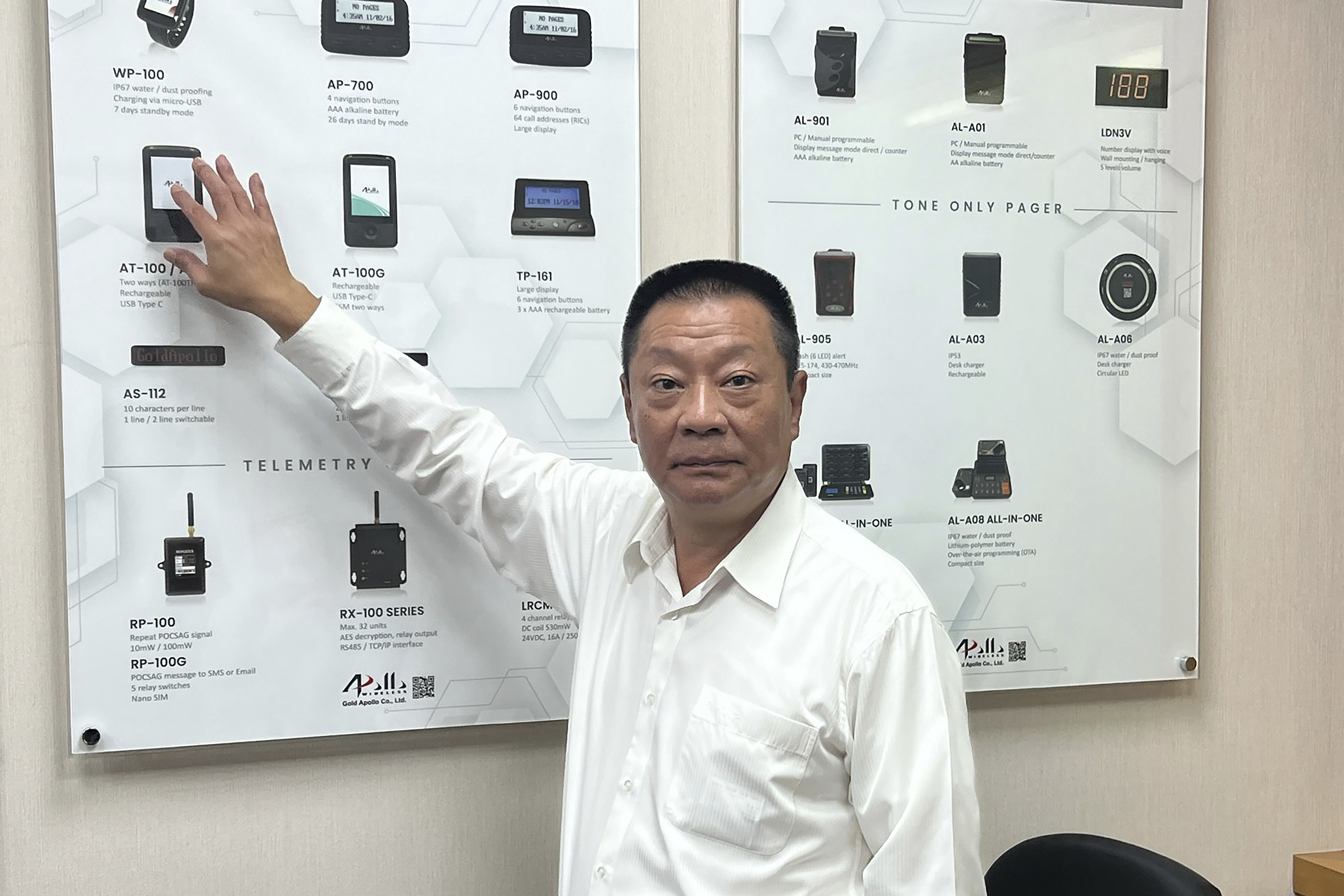Many journalists gathered on Wednesday morning at a large office park in the satellite city of New Taipei, a half-hour drive from Taipei, the capital of Taiwan. Early in the morning, most cameras and reporters crowded the hallways of the third floor of one of the buildings awaiting the arrival of Hsu Ching-kuang, CEO and founder of Gold Apollo. This is the technology company accused of manufacturing the AR-924 pagers that exploded en masse in Lebanon.
"That product was not ours," Hsu stated in front of the microphones, asserting that the explosive pagers that were remotely detonated simultaneously throughout Lebanon on Tuesday, causing the death of twelve people, including eight Hezbollah fighters, and leaving nearly 3,000 injured, were allegedly manufactured by a European company that had the license to use the Gold Apollo brand.
In a subsequent statement, Gold Apollo revealed that this European company that had used their brand is called BAC Consulting KFT, and is based in Budapest. "According to the agreement, we authorized BAC to use our registered trademark for the sale of products in specific regions, but the design and manufacture of the products are entirely the responsibility of BAC. We only provide trademark authorization and do not have any involvement in the design and manufacture of this product," emphasized the statement from a company founded in 1995, with around 40 employees, specialized in manufacturing pagers and small wireless communication devices used in restaurants, hotels, and events.
The focus on Gold Apollo intensified after the New York Times and Reuters, citing anonymous officials, revealed that Israel had tampered with the pagers by placing small amounts of explosive material - from 28 to 56 grams - next to the battery of each locator. A remote-triggered switch was also embedded to detonate the explosives.
"We are a serious company. What has happened is a disgrace," added Hsu, who appeared very nervous in front of the cameras. Taiwan's Ministry of Economy also quickly released a statement ensuring that there were no records of direct exports of the devices to Lebanon.
"It is clear that the devices were modified in Europe. It must be the Hungarian company that should provide explanations," commented a Taiwanese government official during a phone conversation. Through regular channels, the Ministry of Foreign Affairs of the island did not respond to the request for comments.
On the other hand, the government stated that the Hungarian company BAC is "a commercial intermediary, without production or operation center in Hungary", according to Afp.
"The devices in question have never been on Hungarian soil," added government spokesperson Zoltan Kovacs on the X social network, and "this case poses no risk to national security."
In Taipei, there are concerns that all this turmoil could shake its thriving technological industry, crucial in global supply chains. Taiwan is the global epicenter of the most advanced semiconductors, highly demanded as they are essential to power virtually all electronic products worldwide.
Approximately two-thirds of Taiwan's exports, which represent around 70% of its GDP, consist of electronic products and machinery. The vast majority of the most modern chips are produced by a single company, Taiwan Semiconductor Manufacturing Corporation (TSMC).
Taiwanese officials are quite uncomfortable with how the storm unleashed in the Middle East by the mysterious explosions of Hezbollah's pagers has reached this self-governing island that faces the daily threat of invasion from China. Taipei, which does not maintain diplomatic relations with Israel, prides itself on staying out of any conflict unrelated to its front with Beijing.
But in the Gaza war, the Taiwanese government, as usual, follows what the United States, its main international backer and arms supplier, says, so it has shown full support to Israel, both after the Hamas attack and in the bloody response of the Israeli army.
